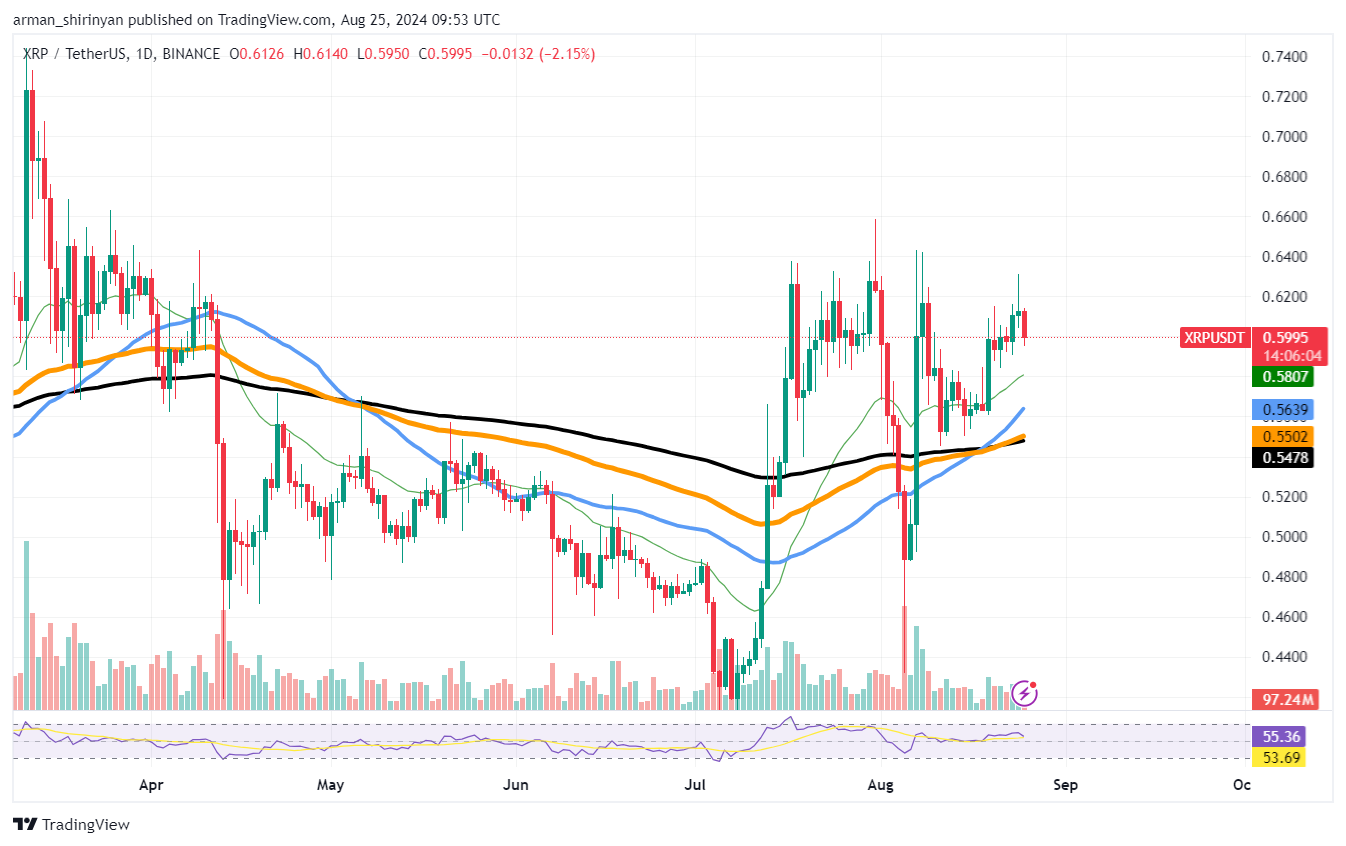Spot crypto ETFs focused on assets beyond bitcoin and ether would only have a quick path to launch if the current precedent changes.
In other words, the Securities and Exchange Commission would need to see a regulated futures market — and a correlation between that and the spot market — before approving ETFs that hold crypto directly.
The regulator approved spot bitcoin ETFs in January. It then last week approved 19b-4 proposals from the exchanges on which spot ether ETFs would launch — one step toward their trading in the future.
Read more: Digesting the ETH ETF decision: What it means and what comes next
Though the latest action spurred optimism around potential future products focused on solana, XRP or even dogecoin, SEC precedent doesn’t support such a hope anytime soon.
“I can’t see SEC approval without a functioning regulated market,” said Bryan Armour, a director of passive strategies research at Morningstar. “Personally, I don’t think the futures market gives more insight into the underlying spot markets and potential manipulation, but that’s the line drawn in the sand by the SEC.”
Futures to spot progression
CME Group launched bitcoin futures in December 2017.
SEC Chair Gary Gensler said during a virtual event in August 2021 that the commission would “look forward” to reviewing filings limited to CME-traded bitcoin futures contracts. ProShares launched the first bitcoin futures ETF about two months later.
Launching futures funds didn’t prove an immediate path to launching US spot bitcoin ETFs. But it ultimately helped the cause immensely.
That’s because Grayscale Investments sued the SEC in 2022, claiming the regulator’s decision to approve bitcoin futures funds, but block spot BTC products, was “arbitrary and capricious.”
Grayscale won that case last year, with judges noting: “The commission’s unexplained discounting of the obvious financial and mathematical relationship between the spot and futures markets falls short of the standard for reasoned decision-making.”
History was then made, with the SEC clearing the first US spot bitcoin ETFs in January.
On the ETH side, the story isn’t too different.
Ether futures became available via CME Group in February 2021. Despite a few failed attempts to launch ether futures funds, the SEC signed off on ETH futures funds last October.
Read more: SEC now ready to consider ETH futures ETFs, sources say — but what’s changed?
Then came the regulator’s approval of the 19b-4 proposals for spot ether products to be listed on Cboe, NYSE Arca and the Nasdaq.
The SEC’s May 23 order noted “the CME ether futures market has been consistently highly correlated with this subset of the spot ether market throughout the past 2.5 years.”
The correlation between the markets throughout the sample period was no less than 96.2% using data at an hourly interval — essentially confirming a past analysis submitted by ether ETF applicant Bitwise.
Could the precedent change?
Armour, Bitwise senior crypto analyst Ryan Rasmussen and others have noted this precedent could change.
“So far regulated futures markets have been a prerequisite for spot ETF approvals for both bitcoin and ethereum,” Rasmussen told Blockworks. “However, it’s not guaranteed that it will be a prerequisite for approving every crypto spot ETF in the future.”
Former President Donald Trump has signaled support of the crypto industry, if elected, though has not detailed any concrete plans. More Democratic lawmakers have been showing support of the space of late, with dozens straying from the party’s majority to support pro-crypto legislation.
“Things could change in Congress pretty quickly, particularly if they come out with a market structure bill over the next year and really define what’s a commodity and what’s a security,” Bloomberg Intelligence’s James Seyffart told Blockworks co-founder Michael Ippolito.
Fellow Bloomberg Intelligence analyst Eric Balchunas noted during the same podcast that a Joe Biden re-election would likely mean a long time before any other spot crypto ETFs get SEC clearance.
The commission could substantially change its attitude toward crypto if Trump wins, he said — adding, however, that it remains “a huge variable” whether Trump would follow through on embracing crypto.
Possible future crypto products
The seemingly unanswered question around whether ether was a security or commodity was thought of as a barrier to ETH fund approval.
Read more: SEC has been investigating ETH for over a year, new court filing shows
A number of industry watchers noted the SEC’s latest ether ETF order essentially clarified that ether is not a security.
Loading Tweet..
At the very least, it seemed to signal the agency does not view unstaked ETH a security given that the planned products would not stake their ether holdings.
Gensler has said most crypto assets are securities, which would put the prospect of them being wrapped into an ETF in doubt.
Ruslan Lienkha, chief of markets at YouHodler, said he expects to see filings for XRP and solana ETFs next.
The SEC labeled SOL as a security in lawsuits against Coinbase and Binance last year. Others it deemed to be a security include cardano (ADA), polygon (MATIC), filecoin (FIL) and NEAR Protocol (NEAR), among others.
Litecoin (LTC) and dogecoin (DOGE) are among the top crypto assets that the SEC has not yet officially called securities.
A US federal judge ruled last year that while Ripple’s institutional sales of XRP were found to constitute an unregistered securities offering, programmatic sales were not.
Most financial advisers and wealth managers are still working to get up to speed on bitcoin, Rasmussen said. Learning about ETH, SOL and other crypto assets is a second or third step within the crypto journeys of financial pros.
As more crypto assets come to market in the ETF wrapper, he explained, crypto index ETFs are likely to play a significant role in crypto investing.
A timeline on those launches is hard to predict, Rasmussen said.
He added: “Crypto index funds could see significant demand from advisers because they’d enable them to provide clients with broad exposure to the fast-growing crypto sector while removing the difficulty of picking and choosing winners.”







